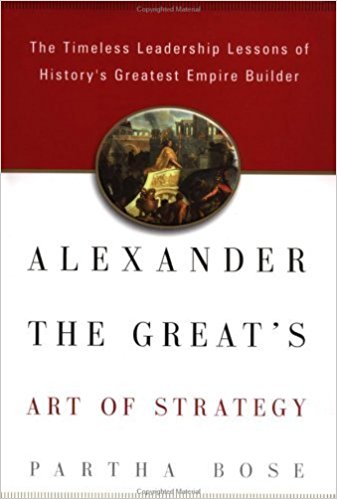The Art of Strategy: A Deep Dive into the Tactical Genius of Alexander the Great
Introduction
Alexander the Great, a name synonymous with military brilliance and imperial ambition, continues to fascinate historians and strategists alike. His conquests, spanning from Greece to India, are a testament to his exceptional strategic acumen. This white paper delves into the key strategic principles that underpinned Alexander's military successes, exploring how his innovative tactics and leadership qualities remain relevant in the modern world.
Key Strategic Principles of Alexander the Great
- Rapid Maneuver and Surprise:
- Alexander was a master of rapid maneuver, utilizing surprise attacks to overwhelm his enemies.
- He often marched his armies long distances, outmaneuvering his opponents and catching them off guard.
- The Battle of Issus, where Alexander's swift attack routed the larger Persian army, is a prime example of this strategy.
- Psychological Warfare:
- Alexander understood the power of psychological warfare. He used propaganda to demoralize his enemies and boost the morale of his troops.
- His reputation as an invincible warrior instilled fear in his opponents.
- By spreading rumors and disinformation, he often sowed discord among enemy ranks.
- Adaptability and Innovation:
- Alexander was not afraid to adapt his strategies to suit the specific conditions of each battle.
- He was a skilled tactician, able to improvise and respond to changing circumstances.
- The Battle of Gaugamela, where Alexander's innovative tactics defeated the massive Persian army, highlights his adaptability.
- Inspiring Leadership:
- Alexander was a charismatic leader who inspired loyalty and devotion among his troops.
- He led from the front, sharing the dangers and hardships of his soldiers.
- His personal courage and determination motivated his army to achieve extraordinary feats.
- Effective Logistics:
- Alexander's military campaigns were supported by a well-organized logistical system.
- He ensured that his armies were well-supplied with food, water, and equipment.
- His efficient logistical operations allowed him to sustain long and arduous campaigns.
The Enduring Legacy of Alexander the Great
Alexander's strategic principles continue to influence military thinking and business strategy. His emphasis on rapid maneuver, adaptability, and leadership remains relevant in today's fast-paced world. By studying his campaigns and applying his lessons to modern challenges, organizations can achieve significant competitive advantages.
Reference List
- Hammond, N. G. L. (1988). Sources for Alexander the Great: An Analysis of Primary Sources. Cambridge University Press.
- Green, P. (1991). Alexander the Great and the Hellenistic Age. Weidenfeld & Nicolson.
- Fuller, J. F. C. (1960). The Generalship of Alexander the Great. Da Capo Press.
Conclusion
Alexander the Great's military genius and strategic brilliance continue to inspire and intrigue. By understanding and applying his key principles, individuals and organizations can achieve remarkable success. His legacy serves as a testament to the enduring power of effective strategy and leadership.



